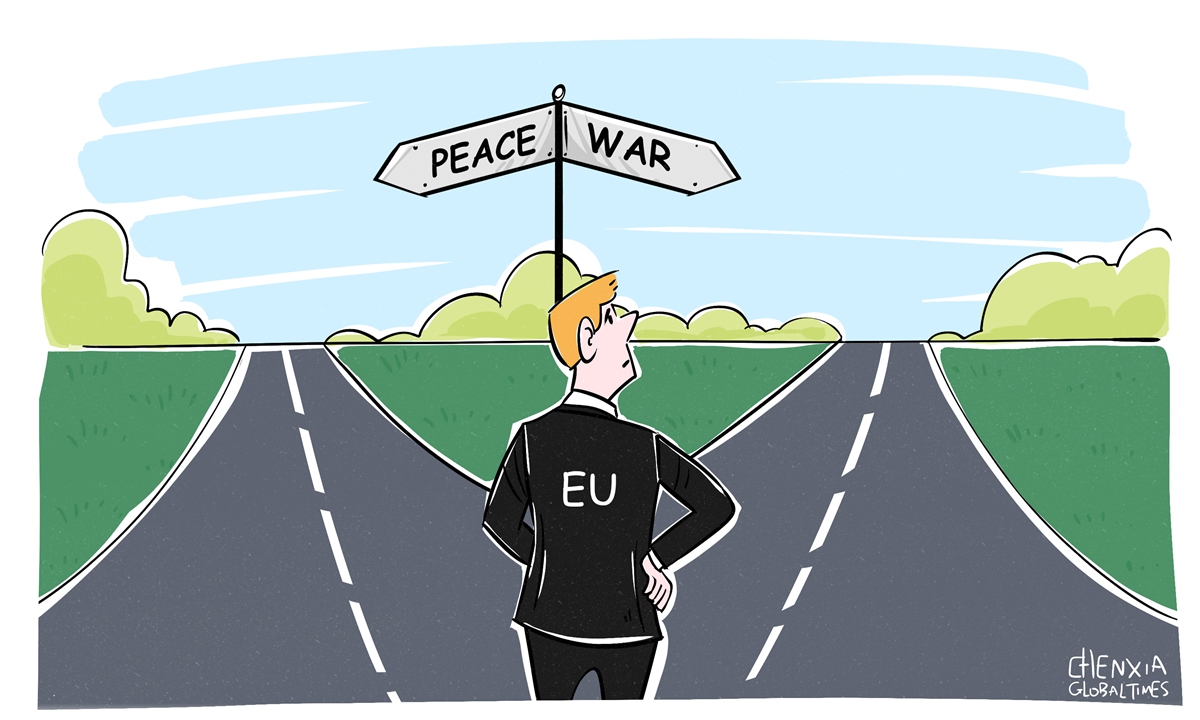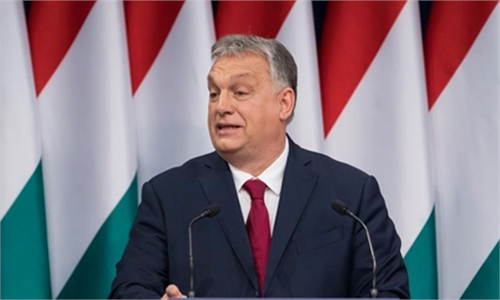
Illustration: Chen Xia/GT
We are witnessing a change in the world order, in the framework of which several proxy wars have already broken out, such as the Russia-Ukraine war, which has been going on for more than two years. The transformation of the world order started a kind of bloc-formation in the world. While Eastern countries are still supporters of dialogue, the West does not want to hear about dialogue, responding with a policy of sanctions.
In contrast, the Hungarian government supports connectivity and dialogue and rejects bloc-formation and war. As a result, Viktor Orban, the Prime Minister of Hungary, announced the peace mission, in the framework of which he first negotiated with Ukraine, and then with the leader of Russia in the spirit of the Seneca philosophy - Audiatur et altera pars, i.e. let the other side be heard as well. After that, he held negotiations with the great powers, who could have an influence on achieving peace as soon as possible. So he visited Beijing and then Washington, where he consulted with the leaders of the US, Turkey and other countries as part of the NATO summit. This is because peace can only be achieved through dialogue.
Although Prime Minister Orban's peace mission serves a good purpose, the EU and its member states expressed their displeasure with the negotiations. In Brussels, it has been argued that the Hungarian Prime Minister, even though his country holds the rotating presidency of the Council of the European Union, cannot negotiate on behalf of the EU. However, the Hungarian Prime Minister did not give the impression that he was speaking for the whole of the EU, not least because the government has made it clear that Hungary does not agree with the position of the vast majority of EU countries on the war in Ukraine. The Hungarian position is that a ceasefire and peace negotiations are needed as soon as possible and that there is no solution to the war on the battlefield.
In contrast, the EU political mainstream believes that the war can only end with the victory of Ukraine, and Russia must be defeated and Kiev must be supported with money, arms and ammunition to achieve this. Orban's peace mission, and the Hungarian presidency in general, has broken no rules.
However, it is clear that Hungary has a different opinion on the resolution of the conflict. In the democratic EU, different opinions are not tolerated. We have seen this in the migrant and LGBTQ issues, and we are seeing it now. After the elections in the EU, the rotating president country's prime minister could not speak in the European Parliament - contrary to previous customs, and the EU has called for a boycott of the events organized by Hungary.
Will the EU soon stop talking not only to Russia but also to one of its member states because it has a different opinion on certain things?
The outgoing European Commission, according to the Hungarian position, is attacking the Hungarian government for essentially ideological and political reasons. It is using legal instruments at its disposal, and even actively supporting the creation of new mechanisms, with the overt aim of putting pressure on certain member states. For years, Hungary has not received most of the EU funds it is entitled to. Also, Ursula von der Leyen announced the launch of a new rule of law procedure just days after the 2022 parliamentary elections, which brought Orban's fourth two-thirds victory.
According to the Hungarian government, the European Commission should be a guardian of the treaties, acting as an honest broker, but instead, it is acting as a purely political body.
The sharp reaction of EU politics to Orban's peace mission raises serious questions about the agenda and interests of the institution and individual countries in relation to the war. Peace should be a universal goal, because every day of war further destroys Ukraine and kills people on both sides, and it is also extremely damaging to the EU economy. The EU's global political weight - alongside its competitiveness, the restoration of which is a priority of the Hungarian presidency - is being seriously eroded, and it cannot even have a meaningful influence on events in its own neighborhood. It should therefore be appreciated, not rejected, that Orban is using his good contacts and influence to promote peace and bring the parties concerned to the negotiating table.
The author is director of the Eurasia Center at John von Neumann University, Hungary. opinion@globaltimes.com.cn


